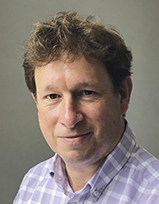What are hymns?
A hymn is a devotional song, usually addressed to a deity. In modern-day Christianity, hymns typically consist of a number of verses (stanzas), each of the same number of lines, that are sung to a melody, or 'hymn tune'. Hymns are not restricted to Christian worship, however, and they also form a regular part of various other religions.
Where did hymns originate?
The word 'hymn' derives from 'ὕμνος' in Ancient Greek literature, where it is used to describe songs of various religious purposes. References from the period suggest that they were often accompanied by instruments such as the kithara (lyre) and aulos (pipes). The earliest instances of hymns appearing in Christian worship date from the 4th century, when Hilary of Poitiers (died c370) is attributed with having written a Liber hymnorum (book of hymns). Originally sung in a single melodic line (monody), hymns started to appear in polyphonic (more than one melodic line) settings from around the 15th century. English-language hymns as we know them today started to proliferate in the mid-18th century, thanks not least to John and Charles Wesley, who made them a central pillar of Methodist church music.
When are hymns sung?
Some hymns are sung throughout the year, but others are specific to particular seasons, such as Advent, Christmas, Lent and Easter. There are also instances of hymns that are intended to be sung in the morning (such as 'Awake, My Soul, and with the Sun') or the evening (such as 'The day Thou gavest, Lord, is ended' – which is also often used at funerals as well). Usually, hymns are sung by the entire congregation, unlike other parts of the service which may be sung just by the celebrant (priest) or choir.
Who wrote the hymn tunes?
Hymns can be often sung to a number of different, often familiar, tunes, and hymn books such as the English Hymnal – first edited by Percy Dearmer and Ralph Vaughan Williams in 1906 – have a section in the index showing which words can be fitted to which melodies. A number of famous composers have written well-known hymn tunes, not least Joseph Haydn, whose 'Austria' is often heard accompanying 'Glorious things of thee are spoken' (as well as providing the tune to the German national anthem) and Hubert Parry, most notably for the tunes for 'Jerusalem' and 'Dear Lord and Father of Mankind' (a melody that originally appeared in his oratorio Judith).
